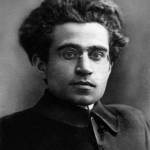In this series, I am articulating my own experience of living through a heart attack, major surgery and convalescence. The first post in this series is here, and I would ask readers to consult it initially. This type of event: “heart attack-surgery-convalesce” is not unusual for men my age and in my day-in-age. But I am interpreting these experiences through a theological lens. I am talking about them as a follower of Christ, whose religion speaks volumes about the necessity of suffering and the meaning of pain.
One could present a common scenario like this in a different register, as a mere smattering of scientific facts, or as a harrowing, poetic tragedy about an otherwise purposeless existence. But I reject this. I reject it, because I simply know that to do so would be to speak less than truthfully– to present a false reality and an incredibly diminished view of such a major life event. To only present physical facts, or present them without recognizing God’s revelation in them, would simply be to give a false report about the world. We normally call that lying, or, at least, not telling the whole truth.
Therefore, in the first part, I dealt mainly with how Christians should respond, or more accurately how the Christian will respond, when God permits a painful trial to enter their life. In Christ, all afflictions become opportunities to know God and to better serve His creatures. In this post, I want to talk about one way, perhaps the main way, that God brings comfort and joy in the midst of suffering: through His people, who we call “the Church.”
The Great (and Awful) Family of God
I realize it is hard for many to hear the term “Church” and think “goodness.” In many places, I have written about or spoken on the need to reveal evil in the Church, to combat hypocrisy and fight against corruption within the community of God. There is no other place in this world where the Devil strikes as hard as from within the community of Faith. This is a known fact, however. So while it comes as no surprise to the Christian apologist when challenged about it, a ready defense is still difficult to produce, especially when the corruption is great. But the Bible, as always, warns us about reality and preempts that which will inevitably occur.
In the epistle of Jude, Jesus’ own brother, we already see that Satan has infiltrated God’s people “by stealth.” They are somehow “in” or “amongst” God’s people, but they aren’t really God’s people.
3 Dear friends, although I was eager to write you about the salvation we share, I found it necessary to write and exhort you to contend for the faith that was delivered to the saints once for all. 4 For some men, who were designated for this judgment long ago, have come in by stealth; they are ungodly, turning the grace of our God into promiscuity and denying Jesus Christ, our only Master and Lord.
Jude 3-4
The beloved disciple John, likely author of the epistles of John, also warns us about early infiltration into the sheepfold:
18 Children, it is the last hour. And as you have heard, “Antichrist is coming,” even now many antichrists have come. We know from this that it is the last hour. 19 They went out from us, but they did not belong to us; for if they had belonged to us, they would have remained with us. However, they went out so that it might be made clear that none of them belongs to us.
1 John 2:18-19
Paul, Peter and the other apostles all bear testimony to fake believers within the Church right from the outset of the Church. Jesus Himself said it would happen:
24 He presented another parable to them: “The kingdom of heaven may be compared to a man who sowed good seed in his field. 25 But while people were sleeping, his enemy came, sowed weeds[e] among the wheat, and left.26 When the plants sprouted and produced grain, then the weeds also appeared.27 The landowner’s slavescame to him and said, ‘Master, didn’t you sow good seed in your field? Then where did the weeds come from?’
28 “‘An enemy did this!’ he told them.
“‘So, do you want us to go and gather them up?’ the slaves asked him.
29 “‘No,’ he said. ‘When you gather up the weeds, you might also uproot the wheat with them.30 Let both grow together until the harvest. At harvest time I’ll tell the reapers: Gather the weeds first and tie them in bundles to burn them, but store the wheat in my barn.’”
Matt 13:24-30
However, even though God revealed from the beginning the sad fact that many would “play” at Christianity, and that these various performances throughout history, individual and corporate, would cause their share of turmoil and strife, still the fact remains: God has planted and empowered a Church made of living people. And it is through His Family that God comforts and brings joy to the world.
Being Anointed With Oil as Consolation in Christ
My pastor and his son (one of my closest brothers in Jesus) arrived the day after I was admitted to the hospital due to elevated troponin levels in my blood (indicators of heart damage). This was prior to the diagnosis that the heart would require surgery, but the seriousness of the issue was clearly mounting as evidence came in. They brought the oils of anointing that saint James commends the Church to use in times of illness:
13 Is anyone among you suffering? He should pray. Is anyone cheerful? He should sing praises. 14 Is anyone among you sick? He should call for the elders of the church, and they should pray over him after anointing him with olive oil in the name of the Lord. 15 The prayer of faith will save the sick person, and the Lord will restore him to health; if he has committed sins, he will be forgiven. 16 Therefore, confess your sins to one another and pray for one another, so that you may be healed. The urgent request of a righteous person is very powerful in its effect. 17
James 5:13-17
Without going into a thorough exegesis of the passage, I nevertheless want to speak about the phenomenon of being anointed by oil and fervently prayed for as an act of consolation. But before we do that, let’s think about consolation as we experience it mundanely in our culture today. I think as we juxtapose the ancient with the modern, the religious with the secular, we may notice a rather stark contrast.
The Consolation of Modern Man
How do we usually console in the modern era? Do we engage in small talk and distraction when we walk into the room of a person potentially on their death bed? What do we speak about? The latest NFL draft; what happened on the last episode of Game of Thrones; who the new principal is at our child’s school; the latest foible of a blundering president or governor? Perhaps about the new restaurant that just opened or the price of gas.
In short, do we talk just about anything we can, except about the reality that starkly presents itself to us in the moment? The reality of fragile humanity, of sin, of death and of life, of eternity and finitude. Many today don’t know how to speak of the magnitude of life, let alone death, and small talk or chit-chat is often the default means of modern man to attempt the consolation of the sufferer.
This kind of talk is one strategy of consolation. Another might be to talk incessantly about causes. What caused the heart attack? Could it have been medically prevented? What are troponin levels again, and how can they be managed? What about exercise, diet, lifestyle, etc., etc.? What will we do different the next time around, should the universe grant us the opportunity? What great plans should we make to take charge of our life and wrest control of the causal processes of nature?
We can talk all day long about the facts of death and dying, of sickness and health. But to what end? Is there comfort in this kind of knowledge? Does an endless dialogue about the physical facts of the universe, even our own microscopic place in it, offer any true consolation? Yet conversations like these, as important as they can be, dominate the halls and waiting rooms of our American health clinics.
But when the Christ follower enters a room of dying or suffering, all experience is elevated to the level of the universal, of the global, of the transcendent and eternal. Not because of the presence of the Christ follower, but because of the recognition of the true ontology, the metaphysics, that ground human life. Douglas Moo points out that James’s concern in any trial is that the patient soul endure it as part of God’s divine will:
We might naturally think that we would be encouraged to petition God to remove the trial. But James’s concern when he deals with trials elsewhere (1:2-4, 12; 5:7-11) is to encourage believers to endure the suffering with the right spirit and with a divine perspective on the events in this world that affect us.
Moo, The Letter of James, PNTC 299
And so James, in continuity with the Jewish practice of gathering older, wiser leaders of the synagogue to bless the community member suffering illness, commends to the follower of Jesus a mode of consolation drastically different than that usually offered us in the era of modernity. Every event, good or ill, has divine and eternal meaning. Thus, it must be treated as such.
The Church’s Way of Consolation
And so I was anointed with oil and showered with fervent prayer by my pastor and his son (my friend) and many others from my own, local church. Only God knows how many and how fervent the prayers, but even I can only imagine the quality and degree of these invocations and blessings. Of course, knowing the personal quality of those praying, I was filled with confidence in the quality and number of their offerings on my behalf.
This is the Church’s way of consolation. It does not preclude the advances of science or disregard the wonders of modern medicine. It is not prayer that God would “one up” the people He created or the results of their efforts over the centuries to make the world a better place. Those who see conflict between God’s direct causation and the secondary causation He endows to mankind to develop our “own” means of alleviating pain and fixing bodies are naive about Who God is and how He works.
But primary in the anointing and fervent prayer is not the physical healing, although James is clear that physical healing is meant in this passage. First and foremost, however, it is the strengthen of the character of the patient’s soul in the midst of trial, and this through the outpouring of divine love. Second, the anointing is an act associated not only with spiritual strengthening, but sacramentally with the purification of the soul whose body is undergoing the trial.
In the next post, I will talk about the horror of witnessing a soul wrestling in agony with its sin as its body decays. This is the most unpleasant of all sights. And so the Church’s consolation to the one suffering also takes into account the moral nature of the person: dignifying him or her as the responsible moral agent they are. Whatever remnant of guilty conscience and affected ego remain in the saint, it should be addressed at the time of bodily peril. To not do so, is to treat the person merely as a body, and, potentially, leave them to wrestle alone with sin, death, the Devil and their own self.
Sin and physical sickness are not as unrelated as our modern world may think; this is not to say there is a simple way to connect the two. However, it is a proven fact that sinful conduct, some more overt like drug use, some less, like having a spirit of unforgiveness, are often directly linked to bodily ailment.
The Prayer of Faith
It should be noted that the anointing with oil is not magic, as the ignorant might suggest. There is no divine property in the substance itself. The oil of anointing is symbolic, the prayers of the elders and the Church are not. Divine power, spiritual strengthening and physical healing power, lie in the intercourse between the faithful and our God. Power is in communicative prayer with God, not in elixirs made by man or even natural properties found in nature. Of course, at this point, I dare not be naive. There is a longstanding and difficult debate over the dynamic between the power of prayers of faith and the divine Sovereignty of God. I cannot resolve that here, but, in short, I agree with the thoughts of Douglas Moo on the issue:
The faith exercised in prayer is faith in the God who sovereignly accomplishes his will. When we pray, our faith recognizes, explicitly or implicitly, the overruling providential purposes of God. We may at times be given insight into that will, enabling us to pray with absolute confidence in God’s plan to answer as we ask. But surely these cases are rarer–more rare even than our subjective, emotional desires would lead us to hope for. A prayer for healing, then, must usually be qualified by a recognition that God’s will in the matter is supreme. And it is clear in the NT that God does not always will to heal the believer. Paul’s own prayer for his healing, offered three times, was not answered.
Moo, 311
And so, while it looks like for all intents and purposes, I have been healed, we understand that God’s will is supreme. As I said in the first post, however, never once did fear grip me. Similar to my time in Afghanistan, I knew that whether I live or die, I am with God. In fact, to have died, would have been in one sense much better–for me. In the end though we must measure the Church’s way of consolation against that of modernity. Of course, I have not addressed all ways that human beings can console, but I must say with all conviction that I would want all people to be consoled by God’s Church; because I do believe that only Christ and His true followers can mediate the kind of consolation that a soul really needs.
A Church of Transformed People
Then there are the actual people of the Church. Of my pastor, and his son (my dear friend), I must say a few words. Although I will leave the description of this man’s incredible life ambiguous, since it is his story to tell. I know, however, that he would agree with me over the simple fact that for someone with his background, a background filled with drugs, violence and criminality, to now be a humble and gentle administer of Christ’s love in the midst of pain is evidence of the reality of the transforming power of God in man.
But how many of God’s chosen people are like this. Murderers, thieves, liars, sexual deviants, egomaniacs, nagging grumblers and boastful jerks; so many of us were just like this before Christ touched us with the power of His love and restored us with the gift of His Spirit. The transformed person is, in the end, the walking proof of God’s desire for all humankind and His work in the world. This is why, as I addressed above, any corruption within the visible church so terribly detracts from the sheer glory of the genuine sinner transformed.
My pastor’s story is public testimony to this latter glory. It is through these two things, the blood of the Lamb, and the word of testimony of men like my pastor, that evil is destroyed and the Devil slain (Revelation 12:7-12). The blood of Christ that transforms us gives us power to destroy the same evil that once bound us. Men and women, or so I have noticed, who have once in their lives been great servants of evil, and then been set free by this blood of the Lamb, are usually the most aware of and most subservient to the power and presence of God. And so I was blessed to be blessed by such a witness as my local pastor (and his son).
The Weeping Widows of Jerusalem/Los Angeles County
But there are others in the Church of God who are carved out for special purposes. Since Christ himself walked the via dolorosa (the way of pain) in Jerusalem, there have been women who have recognized God’s love and divine power and shared in it and shared it with the world. In my life there are three, two widows, one single mother, who shed tears of consolation and showers of prayers in my time of affliction. These three I call “the weeping widows of Jerusalem,” even if one is not technical a widow. But they are real, and, when it comes to holiness, the real deal.
We meet their foremothers in Scripture, on the road to the cross in Luke 23:27, and at the foot of the cross (Mark 15:40-41) and at the burial of Jesus (Luke 23:55) at His Resurrection it is they who first see, and they quietly form with the apostles the great cohort of prayer that has benefitted the Church throughout the ages (Acts 1:14).
The rarity of female saints like these in today’s Americanized church is more and more noticeable. For many women in the Church today, the central aim is to rectify historic power imbalances in the Church, especially in its Protestant manifestation. The post-modern cult of self has diminished the role of the female saint, reducing it to holding positions of prominence and prestige, to advancing women’s “visibility” and “impact.” But for these daughters of Jerusalem, or the one young nun I noticed on staff at my hospital, there is no hint of such mundane desires– such trivial longings.
And so, when I need prayer most, it is to these I turn. For in their great humility, their prayers are most coveted by almighty God, and being coveted by God, then all the more so by his servant. It is not without reason that James tells us, moreover, that religion, pure and undefiled before God, consists in this:
To visit orphans and widows in their affliction, and to keep oneself unstained from the world.
James 1:27b
The Aged and Wise Saint of God
Finally, there are the aged and wise saints of God, the elders of our Church–both in spirit and body. How wondrous and peaceful it is to know old men who have sanctified and holy souls! They are the antithesis of the world’s “dirty old man,” from whom all rightly recoil in both thought and act when encountered. How grotesque is the combination of a cruel or lustful soul with that of a helpless and innocent looking body.
The two should be commensurate– through the weakened flesh we should want to see a divine humility and humbleness. In the appearance of physical weakness we see in our elderly, we long to want them to be morally pure. It should match up: the moral innocence and the physical weakness–as in a child. When the two do not match, however, when we hear vile jokes come from the mouth of an innocent looking older person, especially from a man, it is a true horror.
But of those who have endured well in Christ, and I know three men in particular who possess souls in pristine condition despite their bodily decay, there is the greatest example of moral virtue in the world. The only true measure of the morality of a nation or culture, is the inner life of its elderly. In youth we stray and make our rebellion against God. But if that rebellion persists into old age, if the oldest generation among us is rife with evil, regardless of its capacity to enact that evil physically, then this is the hallmark of a culture on the brink of collapse.
In the Old Testament old-age is the blessing of God; many years are granted to those who are faithful. The greatest blessing for the aged saint would be to see “to the fourth generation” (great-grandchildren) how God had worked out His providential blessing. While all the patriarchs: Abraham, Isaac, Jacob as well as Joseph and Moses, failed in their youth, the end of their days were full as they had run the course with their God. So should it be for all of us who God grants such days, and woe to the local church who fails to recognizes the elderly saints among us (focusing incessantly on the “next generation.”)
Conclusion: The Beautiful People of God
Behind the veneer of the false church that Satan uses to deceive us are the beautiful people of God. At one and the same time this people is the mystical body of Christ, united throughout space and time in the love of Christ and by the power of the Spirit; as well as the local community of men and women who we interact with on Sundays, who we pray with, worship with, sometimes struggle with, but always live and die with. It is a tragedy indeed that many avoid Christ because of “the Church,” but in the end, those who continue to use this as an excuse to follow Him, will find themselves without excuse. For the only true family for all people, the one we are all meant to be born into, is Christ’s Church.
In the next post, I will discuss the reality of God’s mercy in the midst of pain, as well as demons who act mercilessly to the body in pain.

















